Coming up with a list of the 11 most livable countries in Europe will always spark a debate as most of the countries are always included in best-of-countries lists. However, some countries have that slight edge on some aspects, and these little differences will determine the most livable countries in Europe.
European countries have always been known for being one the most developed in the world, although there are a few exceptions. Nonetheless, the citizens of most livable countries in Europe enjoy privileges and experiences that people from the most livable countries in Africa may only dream of. Many of these countries enjoy free or near-free universal healthcare, with large subsidies from the national governments. Average annual salaries are usually higher than in the rest of the world, and the citizens are satisfied with their lives. However, these factors are only some of why these countries are more livable than most countries. Other areas put into consideration are education, income, the cost of living, environment, citizen empowerment, housing and sanitation. There are actually an infinite number of ways to measure livability, as this term is very subjective.
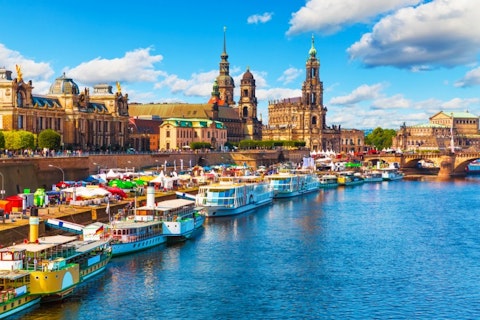
Oleksiy Mark/Shutterstock.com
So what makes a country more livable than another? Insider Monkey sought help from different sources to determine the most livable countries in Europe. Information was provided mainly by 3 sources: The Economist’s Where to be Born Index, the United Nation’s Human Development Index for 2015 and the Organization for Economic Cooperation and Development’s Better Life Index. These sources have different rankings for each country, so Insider Monkey came up with our own unique ranking based on the above-mentioned sources. Ranks for each country were tabulated, and each country’s rank was averaged, which was how these countries were ranked on our list.
Note that there is one instance that a country does not appear in all 3 sources mentioned. This may be due to that country not being a member of a certain organization. Insider Monkey still included countries not found in all sources as long as they appear in at least two.
11. United Kingdom
OECD rank: 8th
UN HDI rank: 9th
Where to be Born Index rank: 14th
Average rank: 10.3
Strong points of the United Kingdom are having a very high score in their environment, which was measured by the number of pollutant particles in the atmosphere. Also, the average life expectancy is 81 years old, In addition, 88% of all respondents have answered that they are satisfied with their water quality, which is an indication of the general sanitation in the country.

Mapics/Shutterstock.com
10. Belgium
OECD rank: 9th
UN HDI rank: 12th
Where to be Born Index rank: 9th
Average rank: 10
Belgians believe that they could rely on someone in times of need, which reflects on 94% of the respondents answering this question. Income is also a strong point of Belgium, as its citizens earn an average of $28,307 per year.

kavalenkava volha/Shutterstock.com
9. Finland
OECD rank: 5th
UN HDI rank: 15th
Where to be Born Index rank: 6th
Average rank: 8.7
On a literacy test, Finnish students scored an average of 529, which was above the average among the countries surveyed. Environmental scores were also high for Finland, as well as the sanitation rating – 94% of its citizens are very satisfied with their quality of water. Also, Finnish rated their general life satisfaction a 7.4 out of a 10, which was higher than the average of 6.6.
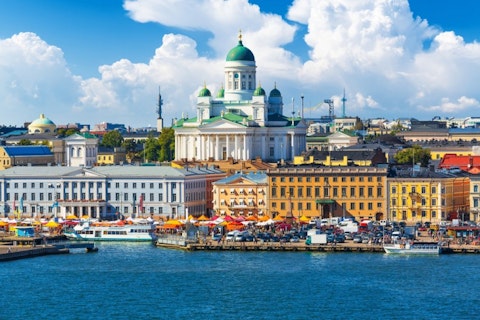
Oleksiy Mark/Shutterstock.com
8. Iceland
OECD rank: 7th
UN HDI rank: 10th
Average rank: 8.5
Its name may turn off some, but Iceland sure has a lot to offer to its citizens. Employment has been a major factor for Iceland’s rank, as 82% of its citizens from the ages of 15 to 64 have a paid job. This was higher than the average of 65% for the countries surveyed. The country also scored high in civic engagement, with 81% of voters turning up during elections. General life satisfaction for the citizens was rated 7.5 out of 10, higher than the average of 6.6.
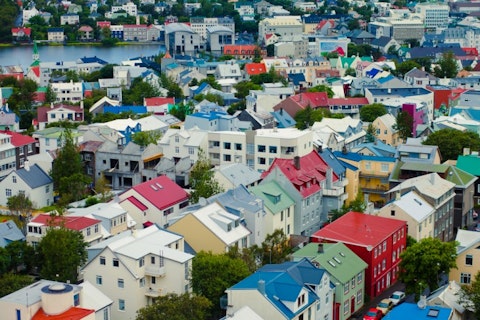
Tsuguliev/Shutterstock.com
7. Ireland
OECD rank: 12th
UN HDI rank: 6th
Where to be Born Index rank: 7th
Average rank: 8.3
This entry is an example that not having a large income can still make a country livable. The average Irish citizen earns $23,917. Although this is much higher than most of the countries in the world, the Irish’s income was lower than the average for the countries surveyed. One area where Ireland scored the highest was on the social and community part, as 96% of its citizens know someone they could rely on during times of need. This may be a big factor in the general life satisfaction of a person as humans are naturally social creatures.

Patryk Kosmider/Shutterstock.com
6. Germany
OECD rank: 10th
UN HDI rank: 5th
Where to be Born Index rank: 10th
Average rank: 8.3
As some people say, money may not buy happiness but it can buy the source of your happiness. Germans earn an average of $31,252 annually, a figure even higher than most countries on this list. Along with this, 73% of Germans from the ages of 15-64 have a paid job. Germans also have very close social ties, as 94% of respondents answered that they could rely on someone during times of need.
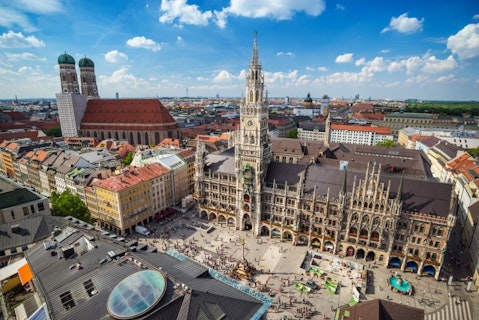
Noppasin/Shutterstock.com
5. Netherlands
OECD rank: 6th
UN HDI rank: 4th
Where to be Born Index rank: 5th
Average rank: 5
Education in the Netherlands is a strong point, as the average student scored 519 on a literacy test, which was above the average for all countries. Working hours have also been pointed out, as only 0.5% of its citizens work long hours. In addition, 90% of people believe that they could rely on someone in times of need. In general, the Dutch rated their general satisfaction at 7.3 out of a 10, a high score compared to the average of 6.6.
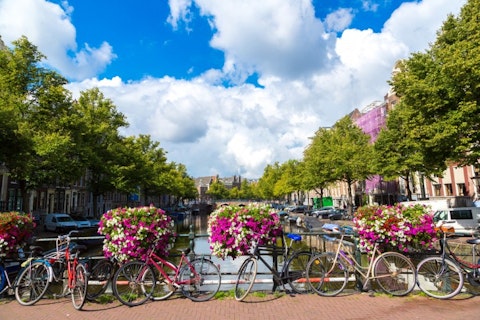
S-F/Shutterstock.com
4. Sweden
OECD rank: 2nd
UN HDI rank: 8th
Where to be Born Index rank: 3rd
Average rank: 4.3
The second Scandinavian country on this list, the Swedes have scored highly on the employment and civic engagement categories. Although not having a salary as high as Germany’s, only 1% of Swedes work very long hours. In addition, 74% of people from 15-64 years old have a paid job. Voter turnout during elections was 88%, and for general life satisfactions, Swedes rated theirs a 7.2 out of 10.
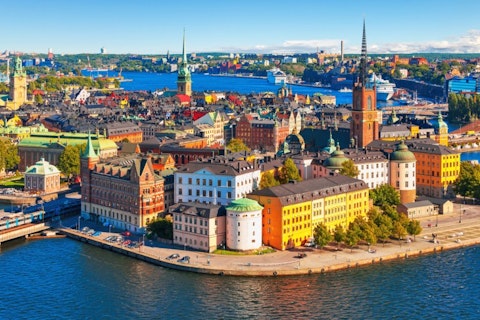
Oleksiy Mark/Shutterstock
3. Denmark
OECD rank: 3rd
UN HDI rank: 3rd
Where to be Born Index rank: 4th
Average rank: 3.3
Danes scored highly on work-life balance, with only 2% of the employees working very long hours. Not working long hours and spending more time for yourself or your family may be a big factor to work-life balance, as Danes only earn $26,491 annually, slightly above the average of $25,908. Social and community factors have also helped Danes score highly on life satisfaction, as 95% of people believe that they could rely on someone during times of need.
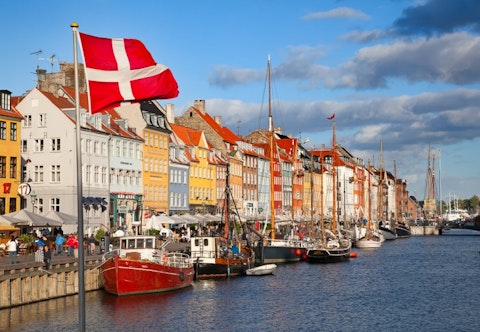
Fedor Selivanov/Shutterstock.com
2. Switzerland
OECD rank: 4th
UN HDI rank: 2nd
Where to be Born Index rank: 1st
Average rank: 2.3
What is it with Switzerland that they always seem to top of nearly-top every “best-of” list? Is it because of the chocolate that they are happy? Kidding aside, Swiss workers earn more than most of the countries on this list, with an annual average of $33,491. Also, 80% of people 15 to 64 years old have a paid job. Education also scored highly, while 96% of Swiss believe that they could turn to someone during times of need. All in all, Swiss citizens rated their satisfaction a 7.5 out of 10.

Boris Stroujko/Shutterstock.com
1. Norway
OECD rank: 1st
UN HDI rank: 1st
Where to be Born Index rank: 2nd
Average rank: 1.3
And this country completes the Scandinavian trio. Along with Switzerland, Norwegian workers also earn a higher-than-average annual salary of $33,492. In addition, 94% of people are satisfied with their water quality. Norwegians also believe that they could rely on someone during times of need, with 94% of respondents agreeing to this. In general, Norwegians rated their life satisfaction a 7.4 out of 10, enough for the top spot among the most livable countries in Europe.

Tatiana Popova/Shutterstock.com





